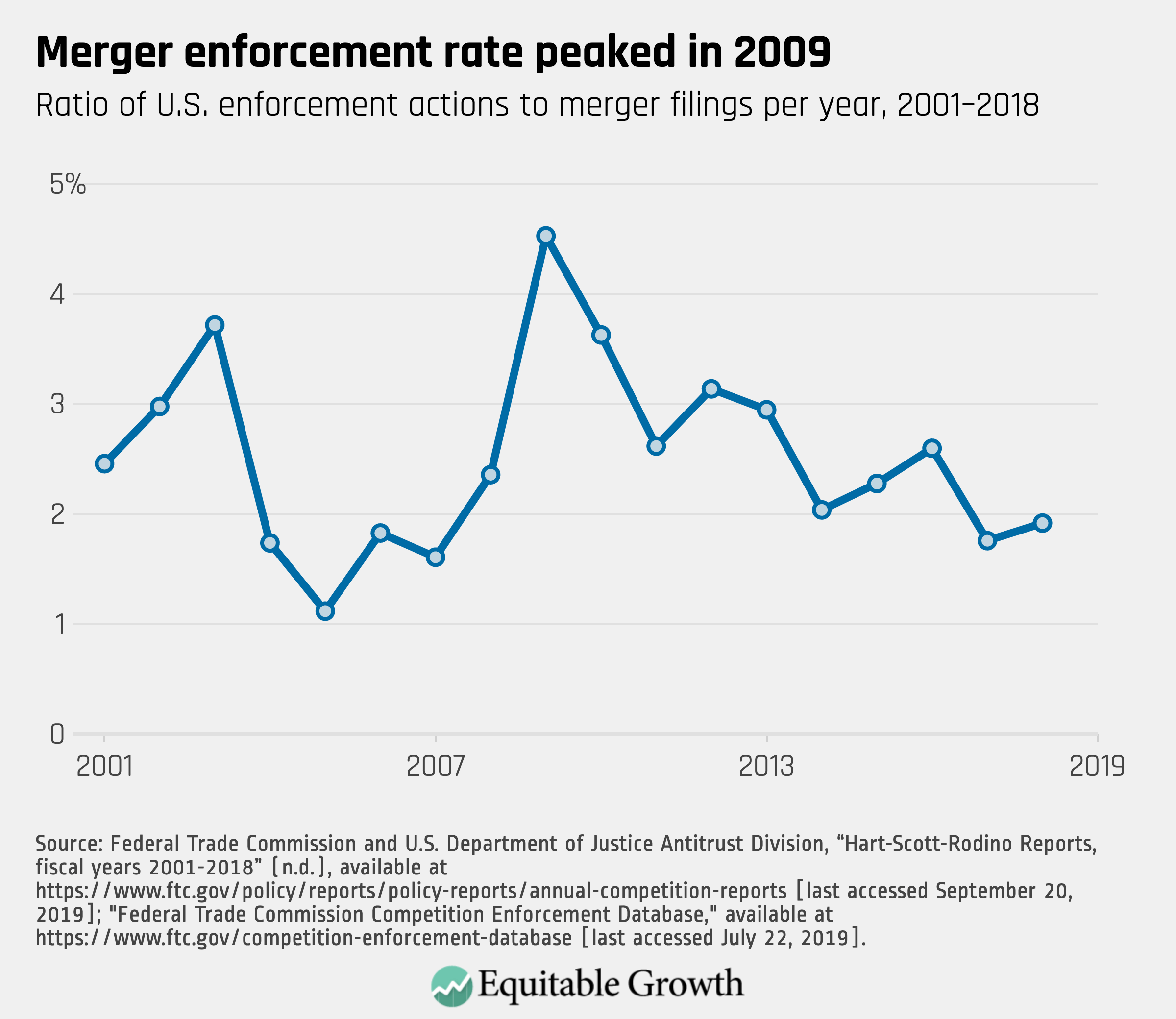U.S. Antitrust Action: Could Google's Ad Business Face Breakup?

Table of Contents
Google's Dominance in the Digital Advertising Market
Google's influence on the digital advertising market is undeniable. Understanding this dominance is crucial to grasping the context of the antitrust lawsuit.
Market Share and Control
Google boasts a staggering market share across various advertising sectors. Its control extends from search advertising to display advertising and programmatic advertising, creating a near-monopoly in many areas.
- Percentage of market share: While precise figures fluctuate, Google consistently holds over 50% of the global search advertising market and a substantial share of the display and programmatic advertising markets. Reports from eMarketer and Statista provide detailed market share breakdowns.
- Google's ad products: Google's advertising dominance stems from a portfolio of powerful products, including Google Ads (formerly AdWords), AdSense, and Display & Video 360 (DV360). These tools are indispensable for many businesses seeking online visibility.
- Strategic acquisitions: Google's history includes several acquisitions of advertising technology companies, raising concerns about its efforts to eliminate competition and consolidate its market power. The acquisition of DoubleClick, for example, significantly strengthened its position in display advertising.
Anti-Competitive Practices Allegations
The DOJ's antitrust case against Google centers on accusations of anti-competitive practices. The core allegation is that Google leverages its dominance in search to favor its own advertising products, disadvantaging competitors.
- Examples of alleged anti-competitive practices: These include accusations of prioritizing Google's own ads in search results, making it difficult for rivals to compete effectively. Allegations also involve preferential treatment given to Google's own products within its advertising platforms.
- References to specific lawsuits or investigations: The DOJ's lawsuit is not an isolated incident. Google has faced numerous investigations and lawsuits from various regulatory bodies worldwide concerning its advertising practices.
- Expert opinions: Antitrust experts have weighed in, with many expressing concerns about Google's market power and the potential negative consequences for competition and innovation in the digital advertising landscape.
The DOJ's Antitrust Case and Potential Outcomes
The DOJ's case against Google hinges on established antitrust laws aimed at preventing monopolies and fostering competition. The potential outcomes are far-reaching.
The Legal Arguments
The DOJ's case is built on the argument that Google has engaged in anti-competitive conduct, violating antitrust laws such as the Sherman Act.
- Key legal arguments: The DOJ focuses on Google's alleged manipulation of search results and its use of exclusive contracts to maintain its dominance in the advertising market.
- Potential legal challenges: Google is expected to mount a robust defense, arguing that its actions are pro-competitive and beneficial to consumers. The legal battle will likely involve extensive evidence and expert testimony.
- Relevant case law and precedents: The case will be judged against existing antitrust law precedents, and the outcome could set a significant precedent for future antitrust cases involving tech giants.
Possible Scenarios
Several potential outcomes exist for the DOJ's lawsuit.
- Scenario 1: Complete Breakup: This would involve separating Google's advertising business from its other operations, creating independent entities. This is a drastic measure, but one that some argue is necessary to restore competition.
- Scenario 2: Structural Remedies: This could involve Google divesting certain assets or business units to reduce its market dominance. This is a less radical approach than a full breakup.
- Scenario 3: Behavioral Remedies: This involves Google agreeing to change its business practices to address the anti-competitive concerns. This option avoids a structural change but may not sufficiently address the underlying issues.
Implications of a Google Ad Breakup
A breakup of Google's advertising business would have profound implications across the digital economy.
Impact on Consumers
The effects on consumers are complex and could be positive or negative.
- Potential price increases or decreases: A breakup could lead to increased competition, potentially lowering advertising prices for businesses and indirectly benefiting consumers through lower prices for goods and services. Alternatively, a fragmented market could lead to higher prices in some sectors.
- Potential impact on ad targeting and personalization: Changes in advertising practices could impact the relevance and personalization of ads consumers see online.
- Potential impact on user experience: The overall user experience could be affected by changes in search results, ad placement, and the types of ads displayed.
Impact on Competitors
A Google ad breakup would significantly reshape the competitive landscape.
- Increased opportunities for smaller advertising companies: Smaller companies would have a greater chance to compete and potentially thrive in a less-dominated market.
- Potential for new players to enter the market: The reduced dominance of Google could encourage new entrants to the digital advertising market, leading to increased innovation and diversity.
- Potential for consolidation among existing competitors: The breakup could also trigger a wave of mergers and acquisitions among existing competitors, as they seek to consolidate market share in the newly restructured landscape.
Impact on Innovation
The effect on innovation is a point of contention.
- Arguments for stifled innovation: Some argue that a breakup could fragment resources and expertise, potentially hindering innovation in the long run.
- Arguments for increased innovation: Others contend that increased competition, brought about by a breakup, would spur innovation as companies strive to offer better products and services.
Conclusion
The ongoing antitrust action against Google's ad business represents a significant turning point for the digital economy. The potential for a breakup presents both opportunities and challenges, with far-reaching consequences for consumers, competitors, and the future of online advertising. While the outcome remains uncertain, understanding the arguments and potential scenarios is crucial. Staying informed about the progress of this pivotal Google antitrust case and its implications for the future of digital advertising is essential. Continue to follow developments regarding Google antitrust action to understand how this case could reshape the online advertising landscape.

Featured Posts
-
 White Lotus Patrick Schwarzeneggers Dedication Amidst Nepotism Accusations
May 06, 2025
White Lotus Patrick Schwarzeneggers Dedication Amidst Nepotism Accusations
May 06, 2025 -
 Snow White Controversy Doesnt Dim Rachel Zeglers Met Gala Shine A Star Studded Evening
May 06, 2025
Snow White Controversy Doesnt Dim Rachel Zeglers Met Gala Shine A Star Studded Evening
May 06, 2025 -
 Sabrina Carpenters New Fortnite Dance Emotes A Closer Look
May 06, 2025
Sabrina Carpenters New Fortnite Dance Emotes A Closer Look
May 06, 2025 -
 Ashton Kutcher And Rumer Willis The Fallout From A Cryptic Social Media Post
May 06, 2025
Ashton Kutcher And Rumer Willis The Fallout From A Cryptic Social Media Post
May 06, 2025 -
 Listen Now Suki Waterhouses Dream Woman
May 06, 2025
Listen Now Suki Waterhouses Dream Woman
May 06, 2025
